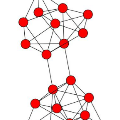New generation electrified and self-driving vehicles require much higher performance and flexibility for onboard digital communications than Controller Area Networks may offer. For this reason, automotive Ethernet is often regarded as the next de facto standard technology in these contexts, and by extension for networked embedded systems as well. However, an abrupt and drastic move from CAN to Ethernet is likely to cause further cost increases, which can be hardly tolerated by buyers. This paper analyzes the third generation of CAN, termed CAN XL, and studies how interoperability can be ensured with Ethernet. Likely, composite CAN XL-Ethernet networks are the key for getting the best of both worlds, not only in the automotive domain but also for sensing and control in scenarios like building automation, wired sensor networks, and low-cost networked embedded systems with real-time constraints.
翻译:暂无翻译





